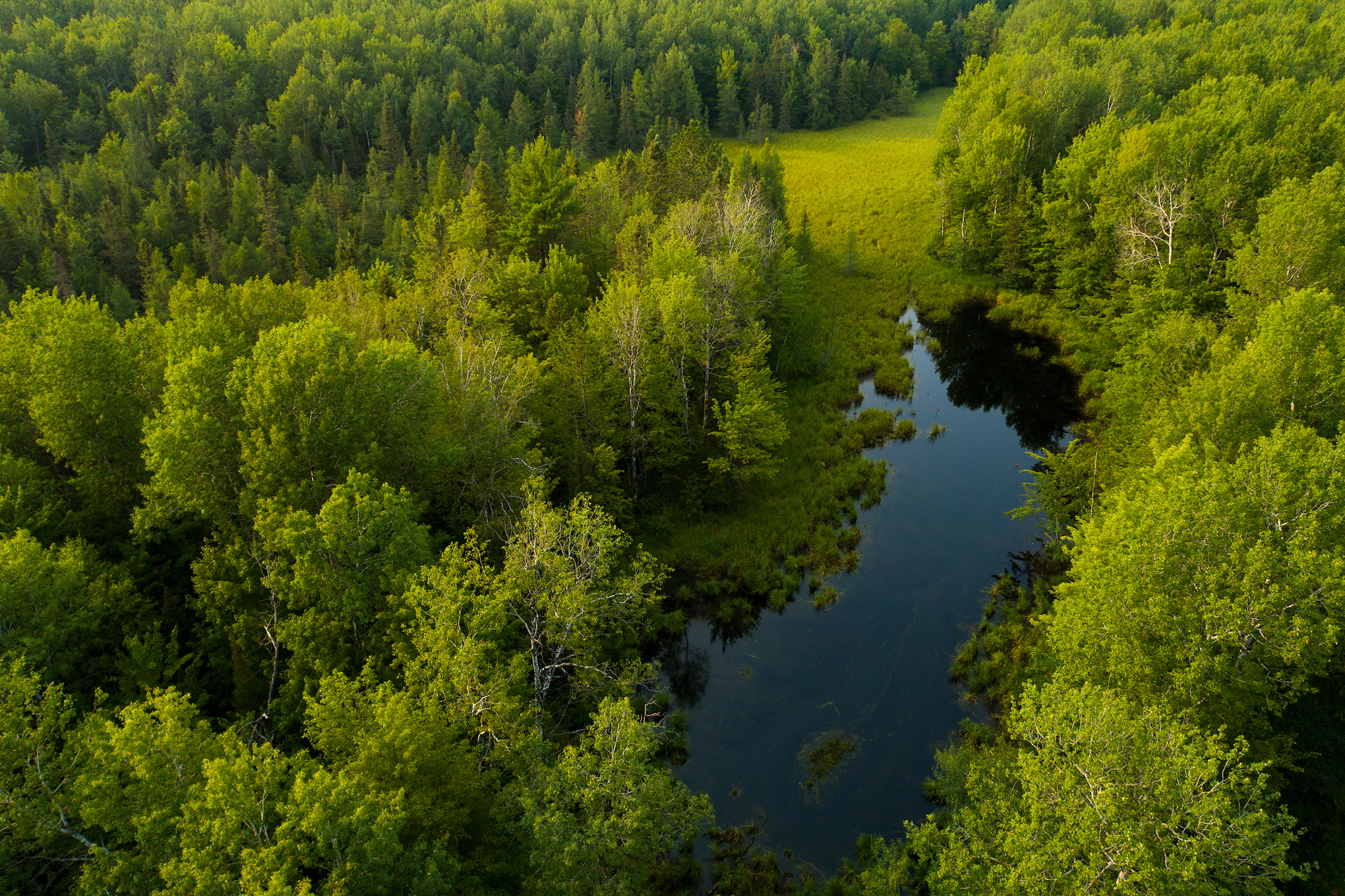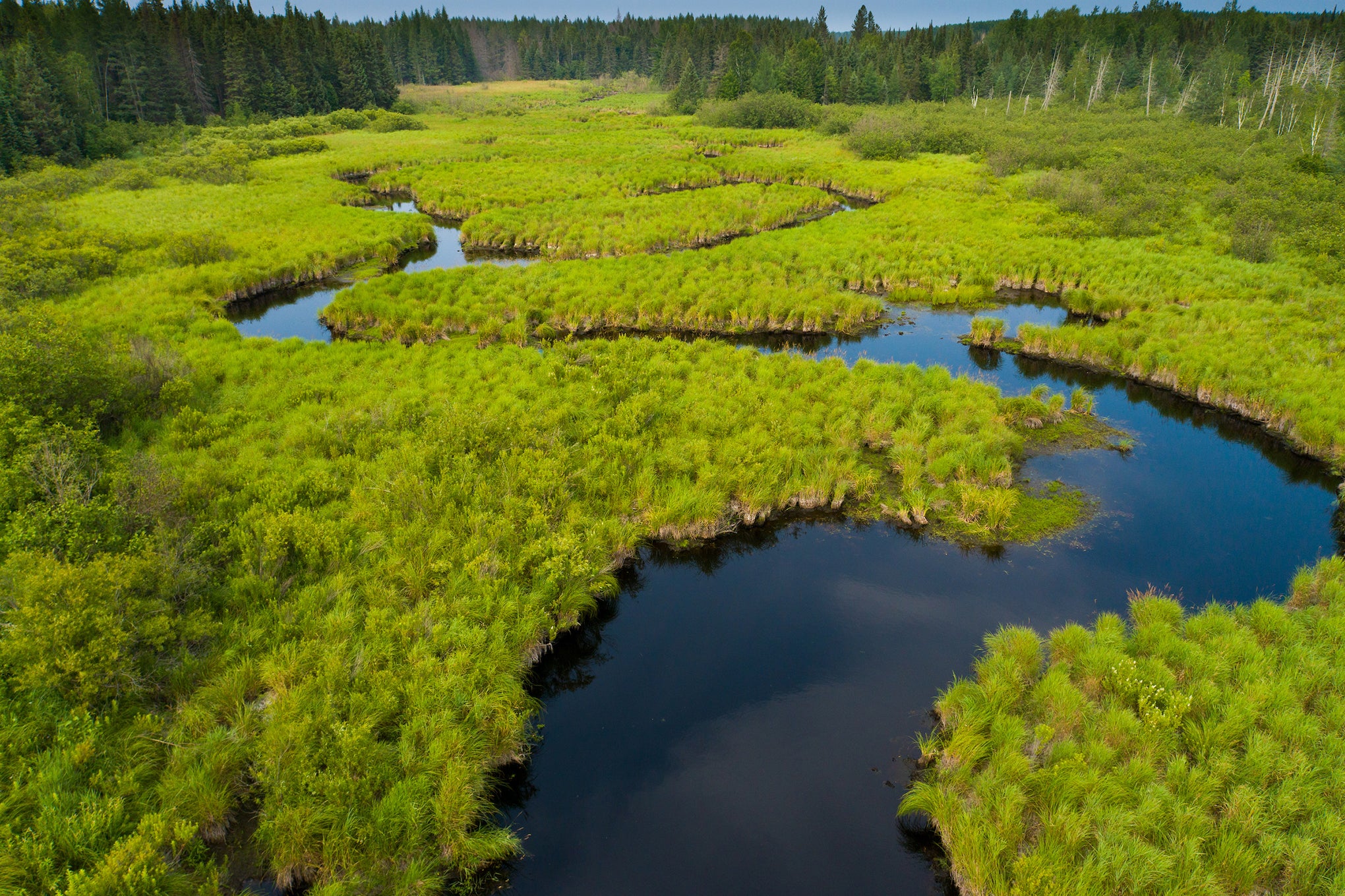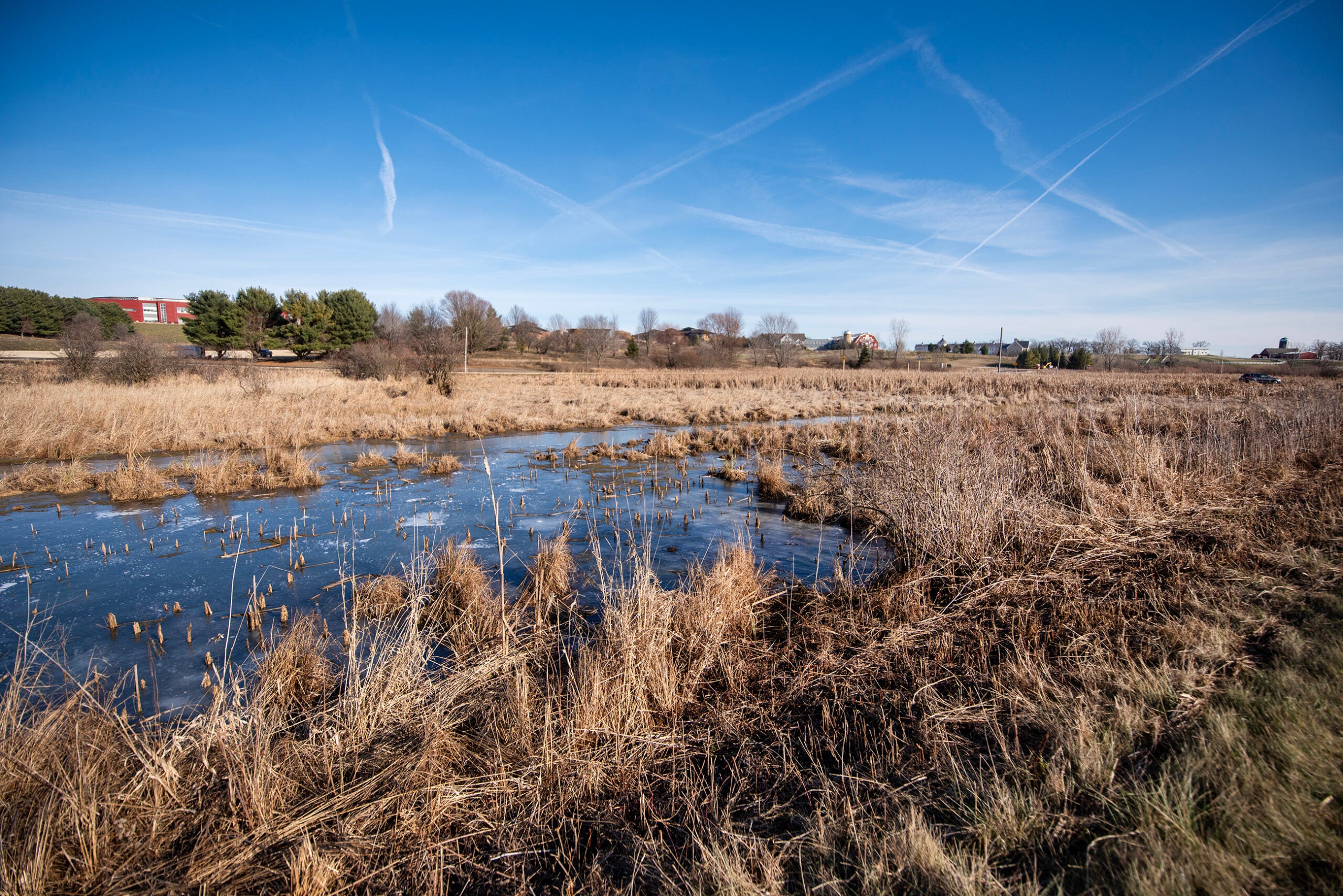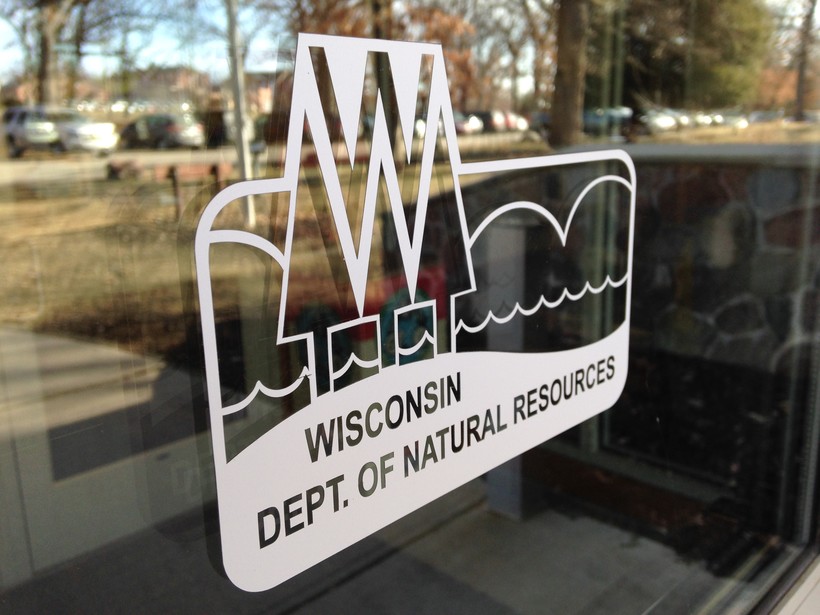Gov. Tony Evers announced grant funding has been secured for the Pelican River Forest, the largest conservation effort in state history, overcoming objections from Republican lawmakers who blocked state funding for the project.
“In partnership with the Biden Administration and the Conservation Fund, we’ve approved the conservation easement for the Pelican River Forest’s remaining acres to protect the forest for generations of future Wisconsinites to use and enjoy,” Evers said during his State of the State address.
WPR previously reported conservation advocates said the Pelican River Forest had received enough funding to replace the $4 million originally sought through the Knowles-Nelson Stewardship Program, but the source of those funds was not disclosed at the time.
The Wisconsin Department of Natural Resources has been working with The Conservation Fund to help set aside roughly 70,000 acres of land east of Rhinelander. The agency is moving forward to complete the easement with the national conservation organization by the end of the week.
In April last year, Republican lawmakers on the Legislature’s budget-writing committee killed funding for the effort under the state’s land purchase program following objections from a GOP legislator and opposition from some local leaders. The money was intended to help finance a $15.5 million conservation easement on the remaining 54,898 acres for public use and logging. The project was cited in a lawsuit filed in October by Evers and Wisconsin Attorney General Josh Kaul against the Republican-controlled Legislature, arguing it is blocking basic government functions.

Stay informed on the latest news
Sign up for WPR’s email newsletter.
Clint Miller, central Midwest regional director with The Conservation Fund, said in a statement that the effort to protect the forest is a “once-in-a-lifetime” opportunity that will strengthen climate resilience, public access and local economies.
“The Conservation Fund and its partners are very grateful to the Richard King Mellon Foundation for their bridge financing loan and for the individual, foundation, and corporate support that helped provide a match for federal Forest Legacy Program funds—including a $600,000 lead grant from the National Fish and Wildlife Foundation through Walmart’s Acres for America Program,” Miller said. “Because so many worked so tirelessly to get this project done, Pelican River Forest will stand tall for generations to come.”
While the land will be privately owned, it will be open to the public for activities like hunting, fishing, hiking and cross-country skiing. The conservation group Gathering Waters provided documents showing more than 50 organizations support the project, including the Wisconsin ATV/UTV Association, Wisconsin Wildlife Association and the Wisconsin Council on Forestry.
The easement would protect the headwaters of the Wolf River along with tributaries that flow into the Wisconsin River. The forest will also protect 58 miles of streams and around 22,000 acres of forested wetlands. The project is expected to store around 19 million metric tons of carbon dioxide, which is equivalent to emissions given off by roughly 4 million vehicles on the road each year. The Pelican River Forest will also support 775 forest-related jobs in addition to providing outdoor recreation opportunities.
The conservation easement is largely funded by an $11 million federal Forest Legacy Program grant through the Forest Service under the U.S. Department of Agriculture.
Local leaders in Oneida, Langlade and Forest counties had recently asked the agency to rescind the grant. Officials in the town of Monico, a small community of less than 300 people, are concerned about the project’s effects on local growth and development.
The Conservation Fund made changes to the project to remove around 1,200 acres to address the town’s concerns, allowing for development along local highways.
Wisconsin Public Radio, © Copyright 2025, Board of Regents of the University of Wisconsin System and Wisconsin Educational Communications Board.





